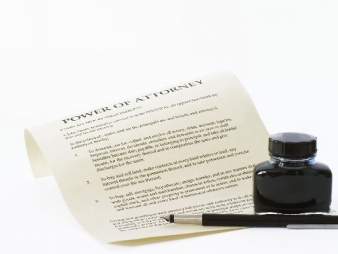If someone appoints you as their financial power of attorney, they are giving you the legal authority to act on their behalf for financial decisions. However, this does not give you the authority to do whatever you want with their finances.
The role as power of attorney is a “fiduciary” role. That means you, as the power holder, must act with a duty of loyalty and duty of care to the grantor.
Most financial powers of attorney documents designate a list of financial transactions in which the power holder may participate. Generally these powers tend to be very broad, covering a wide variety of financial transactions. However, there are typically limitations. For instance, a power holder cannot gift money or assets, and cannot “self-deal” unless the power of attorney document specifically authorizes the power holder to gift or self-deal. Self-dealing means the power holder uses the grantor’s money or assets for their own benefit rather than strictly for the benefit of the grantor. Therefore, unless the document specifically states otherwise, a power holder cannot use the grantor’s money or assets to benefit themselves.
This can get tricky. A power holder may self-deal without even realizing what they are doing. For instance, a power holder may cash a check payable to the grantor but deposit the funds in the power holder’s personal account so that the funds are available through their debit card; making access to the money easier. This is considered co-mingling funds which is not advisable. Another example is when a power holder is the adult child of the grantor. The grantor may have always given Christmas gifts to the power holder’s children each year. To continue that tradition, the power holder makes the gifts on behalf of the grantor using the power of attorney. That is gifting and gifting to your own children is considered self-dealing. The power holder is not allowed to gift or self-deal unless the power of attorney document specifically allows it.
Consequently, the power holder can be liable to other family members in the future if the power holder does not adhere to their fiduciary duty imposed through the power of attorney. For instance, the power holder may be caring for the grantor during the grantor’s last years of life. When the grantor dies, other family members may be expecting an inheritance. If the power holder used the grantor’s money to gift or self-deal, the other family members may have standing to recover that money from the power holder. The family members could claim the power holder breached his fiduciary duty and therefore, disrupted their expectation of an inheritance.
These situations may never arise but power holders should be aware of the duties imposed through their role as a power of attorney. Many people seek advice about designating someone as a power of attorney. However, the person being named as power of attorney should also seek advice about what are their duties and obligations as a power holder. A little advice about how to conduct financial transactions through a power of attorney can save a lot of potential trouble in the future.




